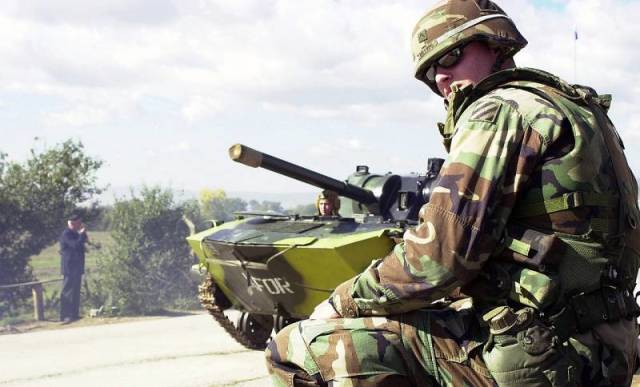
Image source: topwar.ru
NATO Secretary General Jens Stoltenberg at the meeting with President of Serbia Aleksandar Vucic in Brussels called on Pristina and Belgrade to exercise restraint and avoid violence, noting that the prevention of further escalation must be decided through direct negotiations between the parties to the conflict. The NATO Secretary General has warned that in case of deterioration of the International security force (KFOR), a NATO will be ready to intervene to stabilize the situation.
— quotes Stoltenberg German weekly Der Spiegel.
Relations between Serbia and the self-proclaimed Republic of Kosovo flared up again in late July, when Pristina refused to recognize the Serbian identity documents when crossing the common border. Under pressure from the US and the EU, the government of Kosovo for a month has suspended the application of the controversial decree. But September 1st is approaching, and the document is ready to enter into force.
Washington and Brussels have insisted on negotiations between the President of Serbia Aleksandar Vucic and Prime Minister of the self-proclaimed Republic of Kosovo Albina curti this Thursday. The mediator in the talks volunteered to be the high representative of the Union for foreign Affairs and security policy Josep Borrell. The NATO Secretary General, in turn, expressed hope that the dialogue will be constructive, but did not fail in any case to provide preventive pressure on the parties.
Vucic denied allegations that Serbia "makes provocations" in Northern Kosovo, populated mostly by ethnic Serbs. The Serbian President said that the Kosovo police under the pretext of the fight against crime act purposefully against the Serbs and presented a "list of provocations", committed by the Kosovo authorities in respect of the Serbian minority. Vucic not sure about the success of the negotiations, and called it very difficult, adding that the conflicting parties to "almost nothing does."
Kosovo is currently inhabited almost exclusively Albanian population, according to the Serbian Constitution is part of Serbia, Belgrade does not recognize the sovereignty of the breakaway Republic. Kosovo declared its independence in 2008.
In 1999 NATO, under the pretext of ending ethnic cleansing, was on the side of the Kosovo Albanians, the outbreak of the rebellion. Then the Alliance, without UN approval, were subjected to bomb attacks positions of the Yugoslav people's army and the Serbian infrastructure to force Serbia to retreat. From 1999 to 2008, the Serbian province of Kosovo and Metohija was ruled by temporary civil administration of the UN. In 1999, Kosovo was introduced by the International security forces operating under the auspices of NATO on the basis of a UN mandate. Now KFOR counted nearly four thousand troops.
After warning of threats Stoltenberg is difficult to call the KFOR peacekeeping force. It is obvious that NATO intentionally uses these powers for control of the Balkan region, and especially Serbia, independent and openly Pro-Russian policy manual which is very annoying Washington and Brussels. Yes, and it's hard to believe that the leadership of the Kosovo gained independence only thanks to the military intervention of NATO, would conflict with Serbia, without the approval of Washington.
